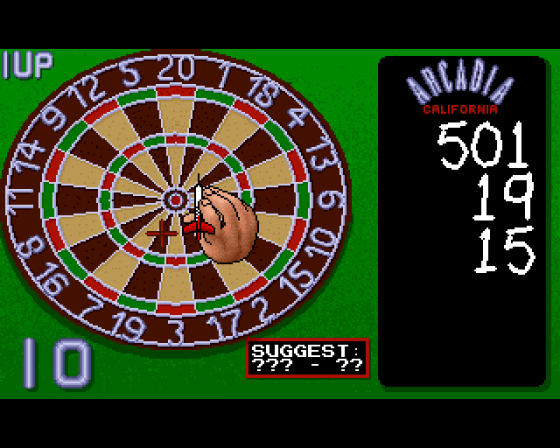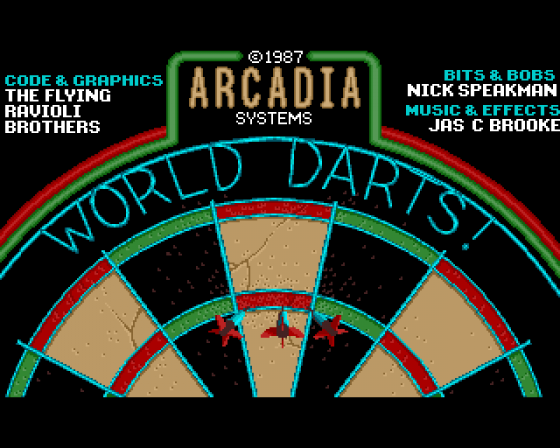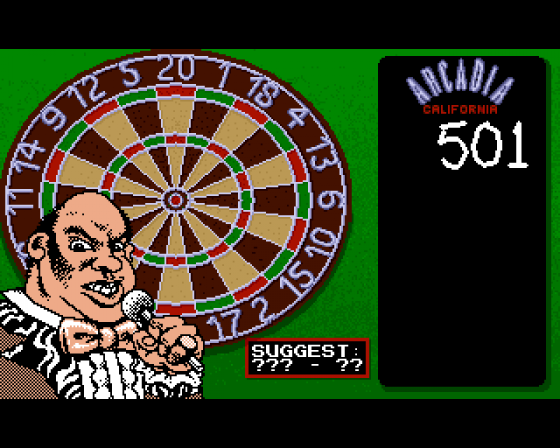
Commodore User
 1st August 1988
1st August 1988
Categories: Review: Software
Author: Gary Whitta
Publisher: Mastertronic
Machine: Amiga 500
Published in Commodore User #59
World Darts
Avid readers of CU will remember that not too long ago, a rather pleasant cheapo from Mastertronic by the name of 180 appeared on the scene. Being the excellent simulation of darts that it was, and costing only three quid, it was duly awarded our coveted 'cheapo of the month' award. Not wanting to leave 16-bitters out in the cold, Mastertronic have converted it into the Amiga and retitled it World Darts.
Upon loading you are presented with a neat opening sequence in which three darts land with a sampled 'thok' into the treble twenty. A fat northern commentator appears and exclaims "Arcadia presents World Darts", as it's supposedly been converted from the Arcadia Super-Select coin-op that houses four games in one machine (including that ole fave Xenon), although I have never personally come across it. After selecting the type of game you want from the option screen (you can either compete against a pal or go for the world title, playing against three computer-controlled opponents in turn) you take the arrows in hand and begin play.
The board itself takes up about two thirds of the screen, with the far-right hand portion housing the scoreboard. To throw your dart you guide a large hand about the screen with the joystick until it points to the part of the board you want to hit and then press fire. It may sound easy but I can assure you it ain't. It's impossible to keep your hand totally still as it is constantly moving, so you simply have to release the dart as the hand passes over the required segment required. Add to this a 15 second time limit to throw each dart and it results in a highly difficult (but not frustrating) dart-throwing technique which takes a lot of practice to perfect (having played both this and 180 though, I found the 'diagonals only' method of 180 a better one).

After throwing each dart, another hand passes over the scoreboard and chalks up the score. After all, three darts have been thrown, the computer does a quick bit of subtraction and tells you how many more points you require. As in the original, there's a handy table on the inlay that saves you from having to get a calculator to work out what you need to 'check out'.
When your turn's finished, the computer opponent steps up to the oche. This was a real let-down for me, as it's nowhere near as good as the original. Whereas in 180 there was a typically bad piece of pubby music played along in the background as the computer throws his darts, in World Darts it's all done in complete silence. On top of this, the player and the backdrop are both poorly defined and animated. Very dull indeed.
What more can you say about a game like World Darts? The first to zero from 501 is the winner and proceeds to the next round. Win all three and you are presented with a platter or trophy or whatever. The graphics have well done (except in the opponents' throwing sequence) and sound is good, albeit sparse, with the same bouncy soundtrack as the original. Not surprisingly, the speech has been greatly enhanced. Although it doesn't fully live up to its predecessor, it's an enjoyable game in its own right and worth a look, if only for the appallingly bad artwork on the packaging.




